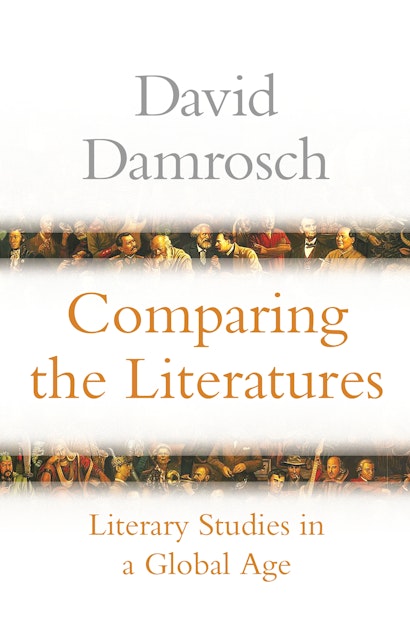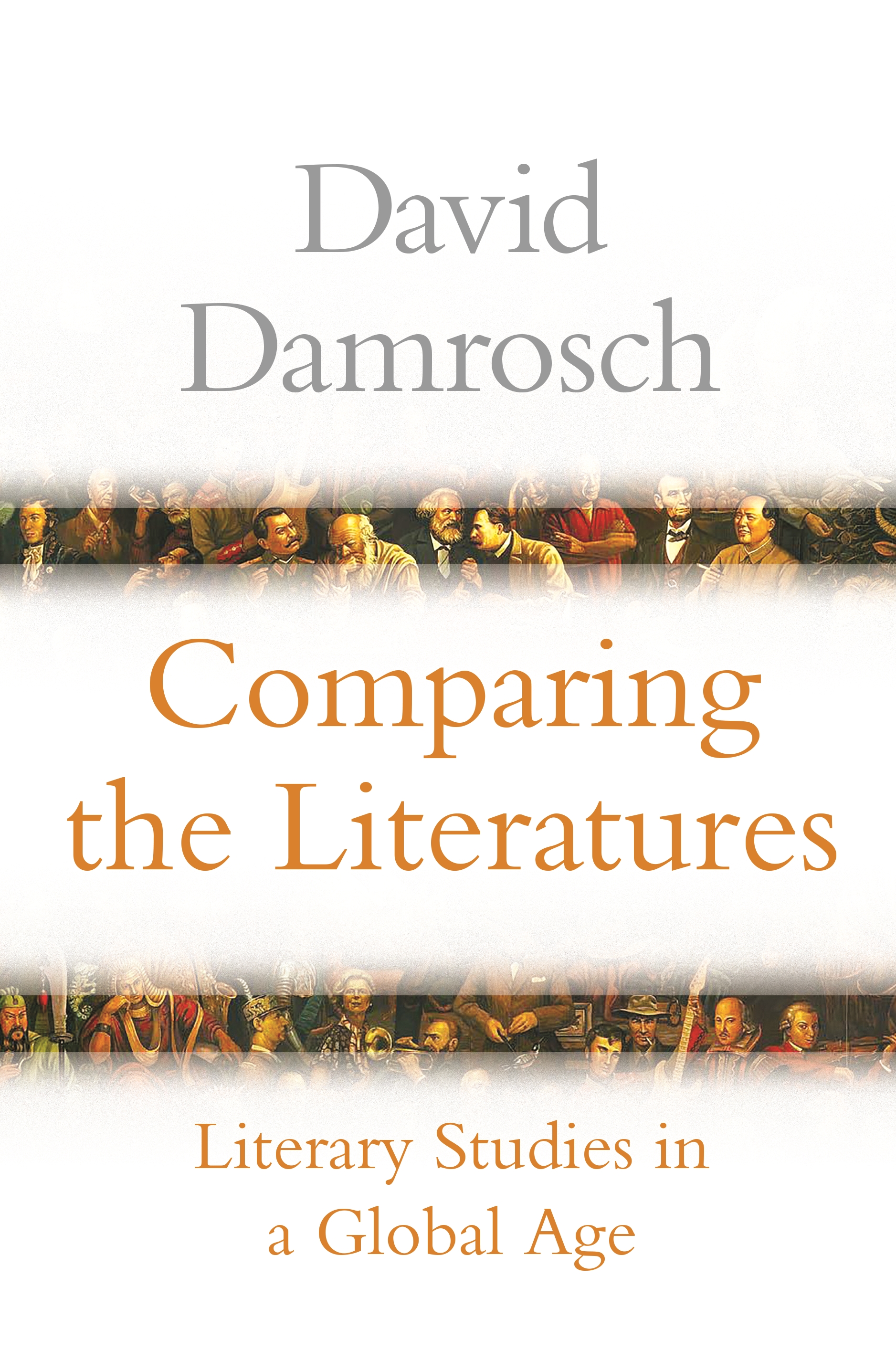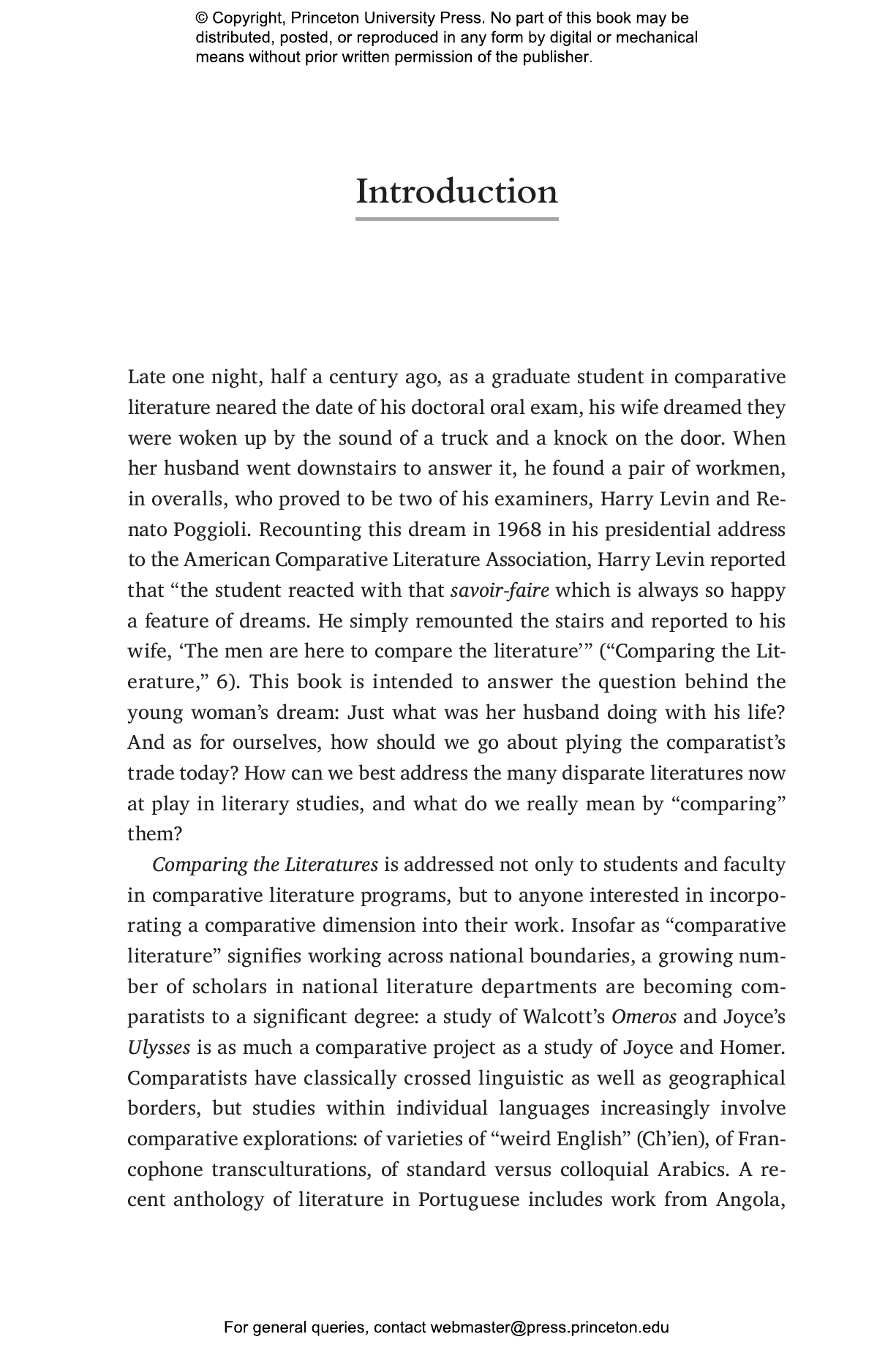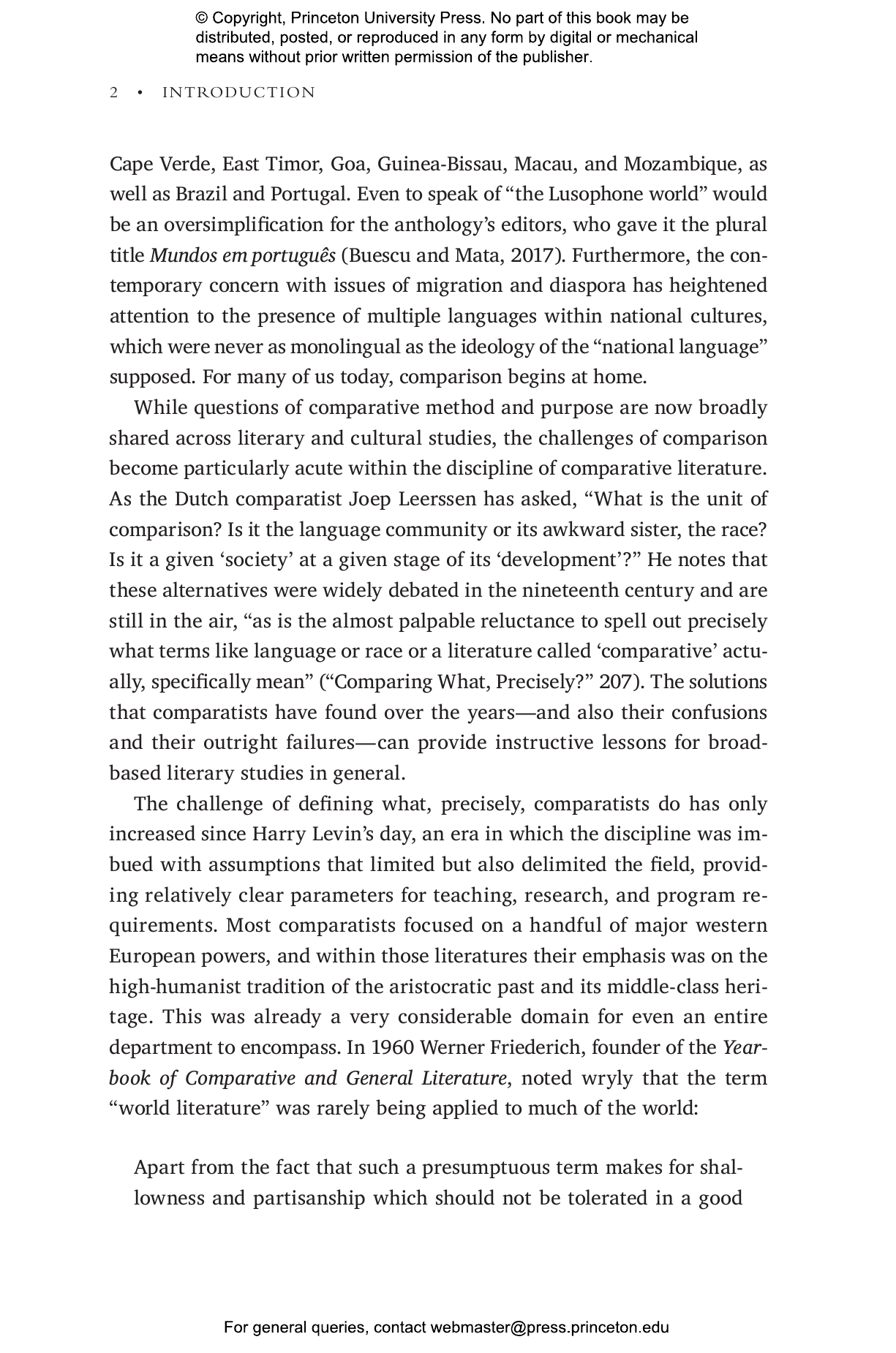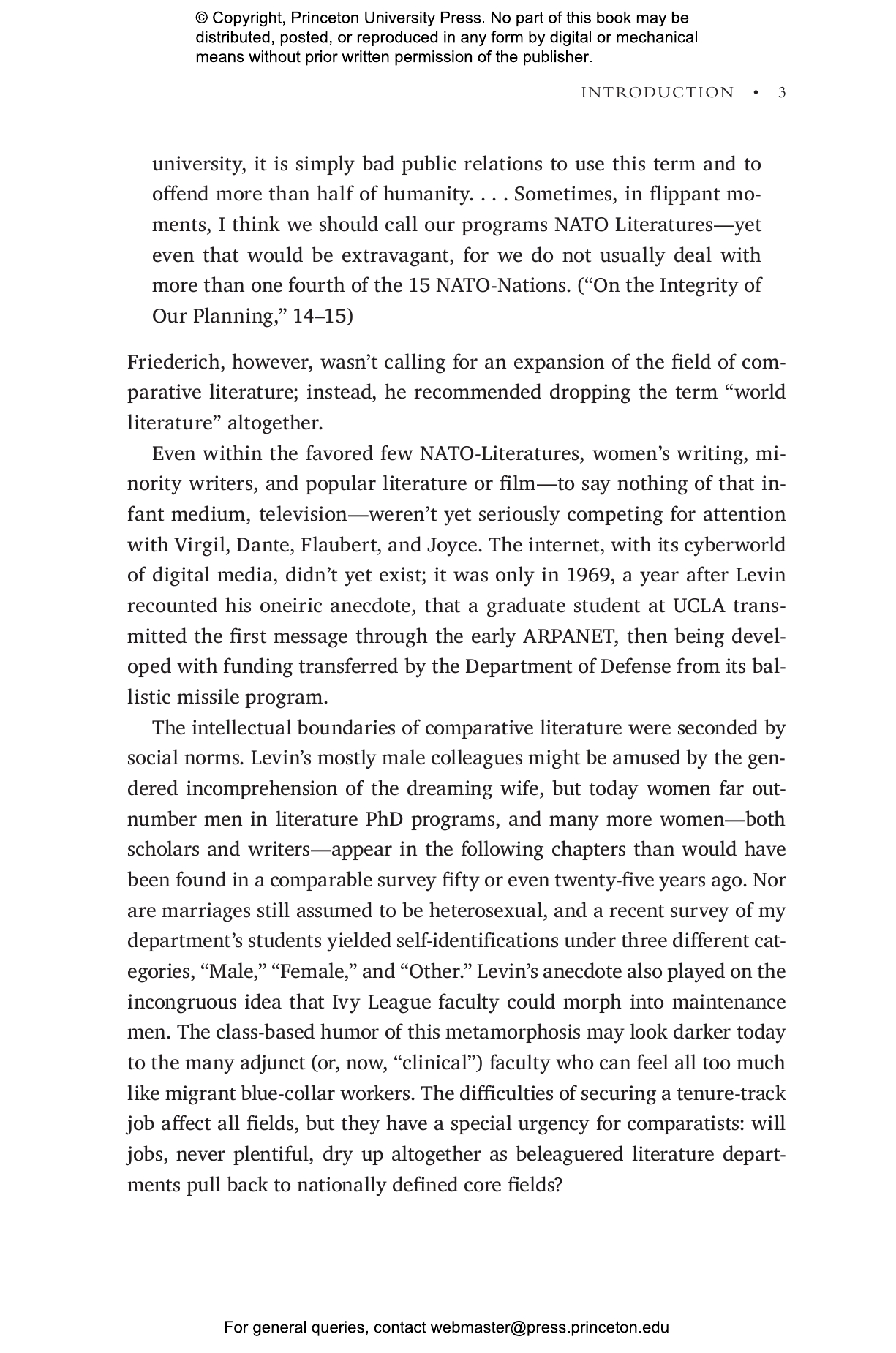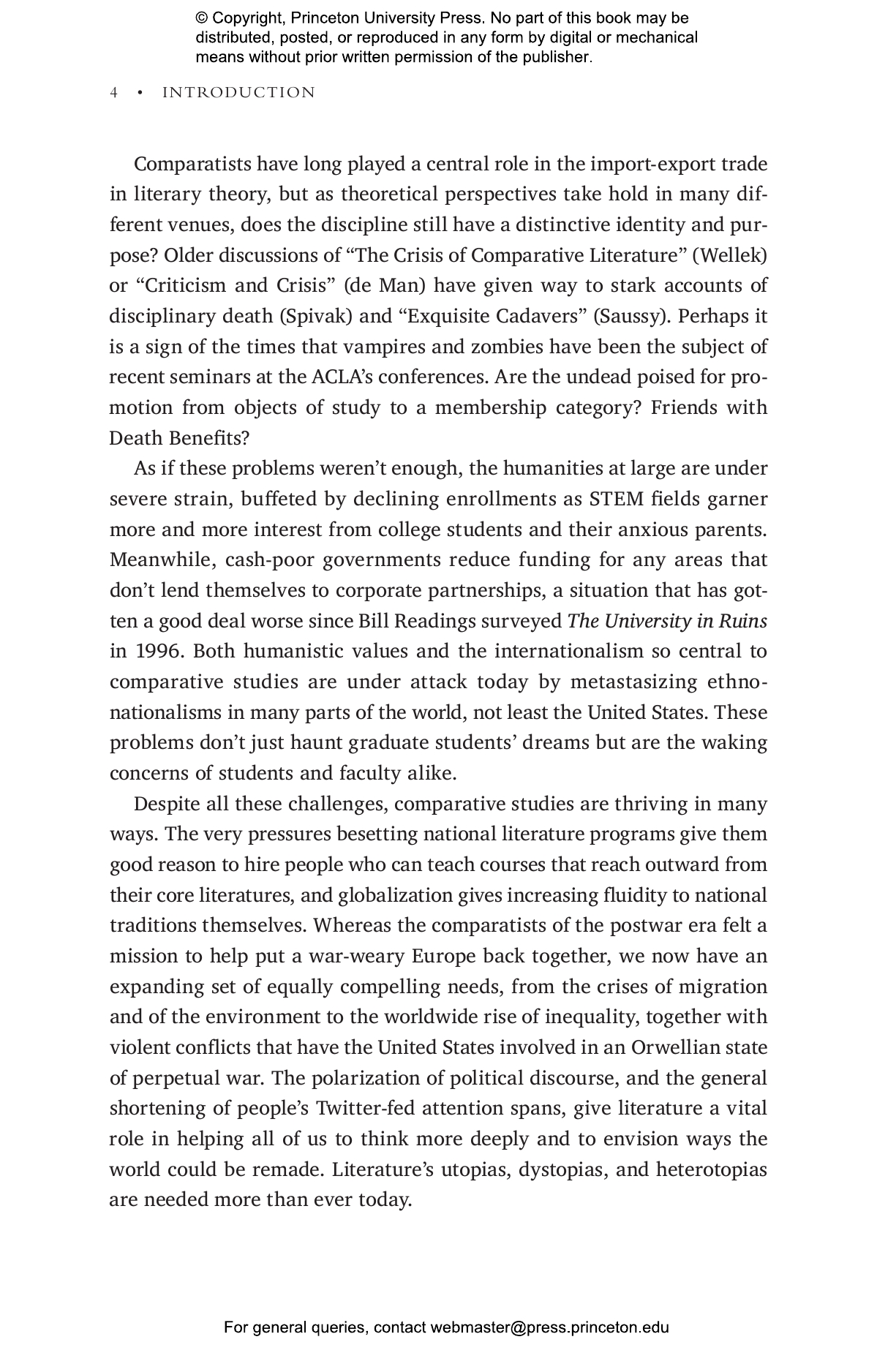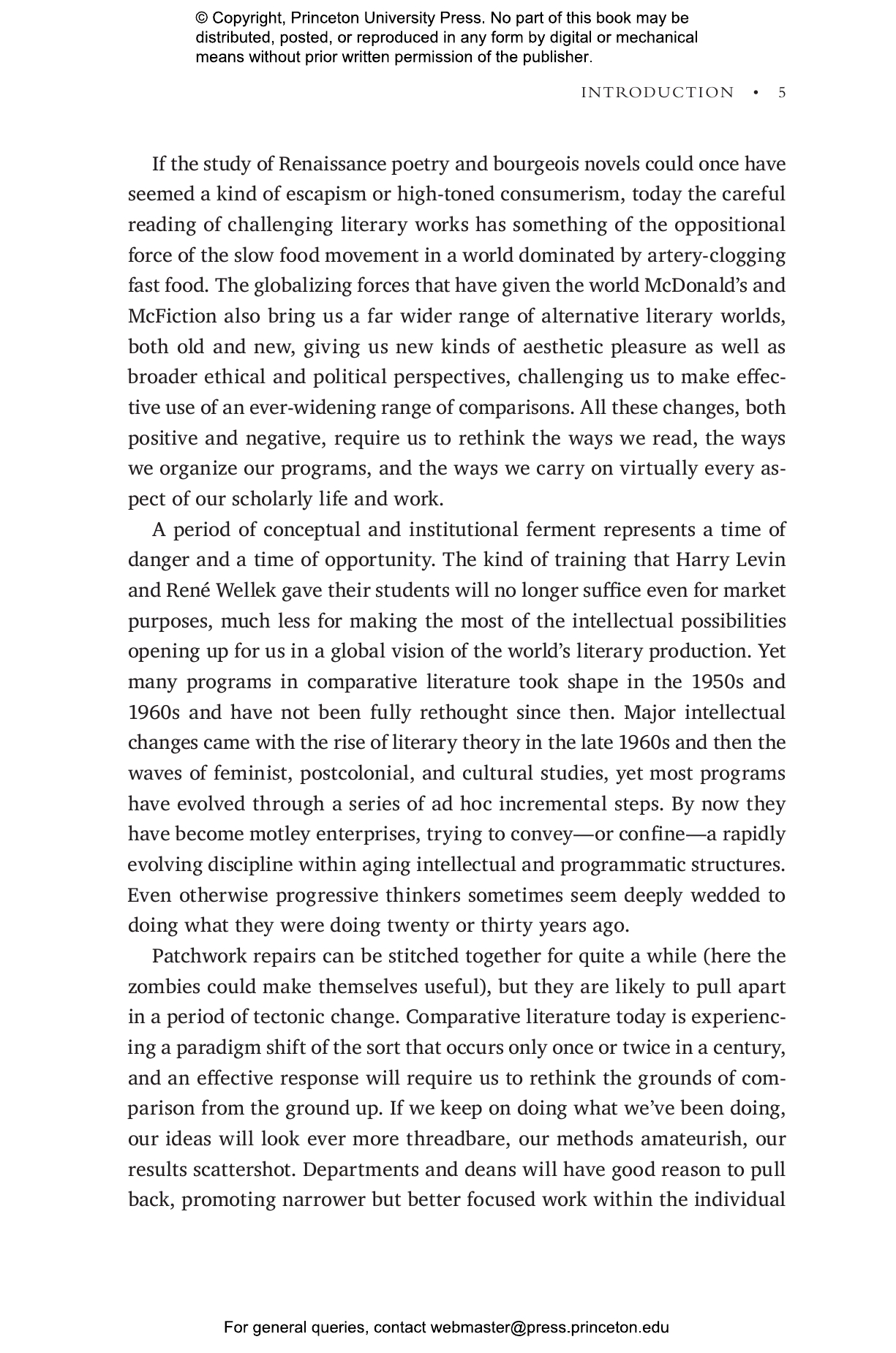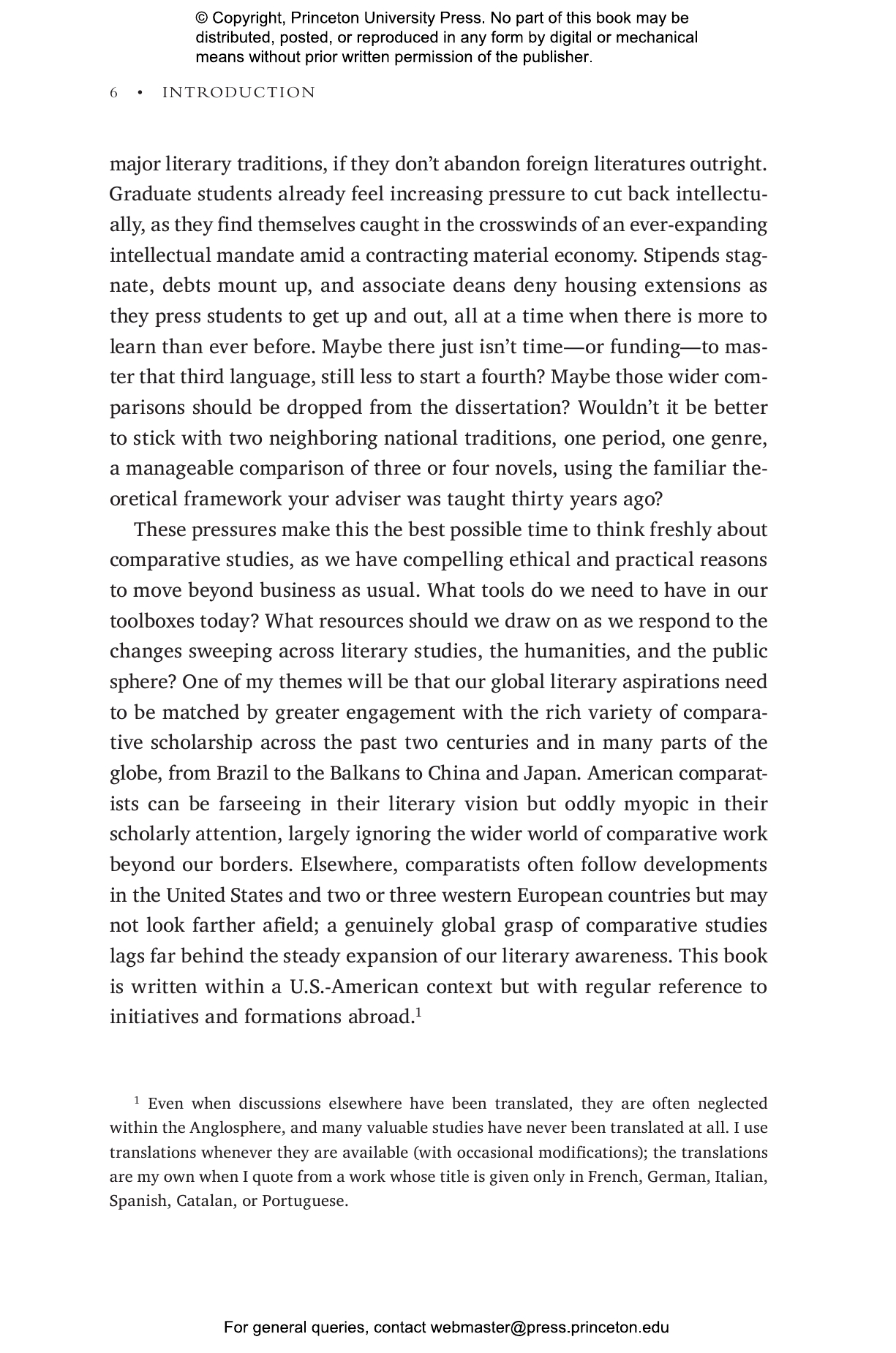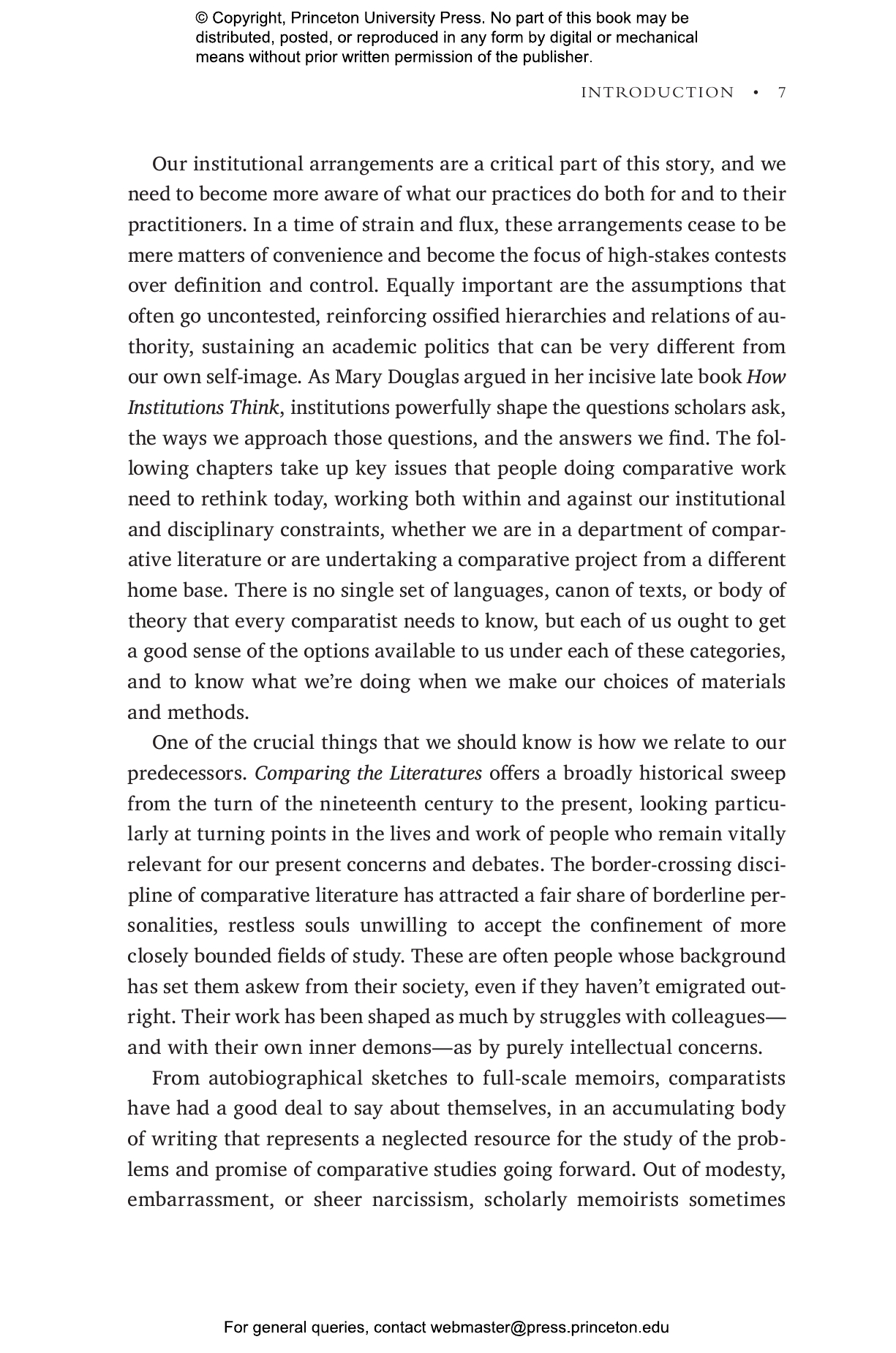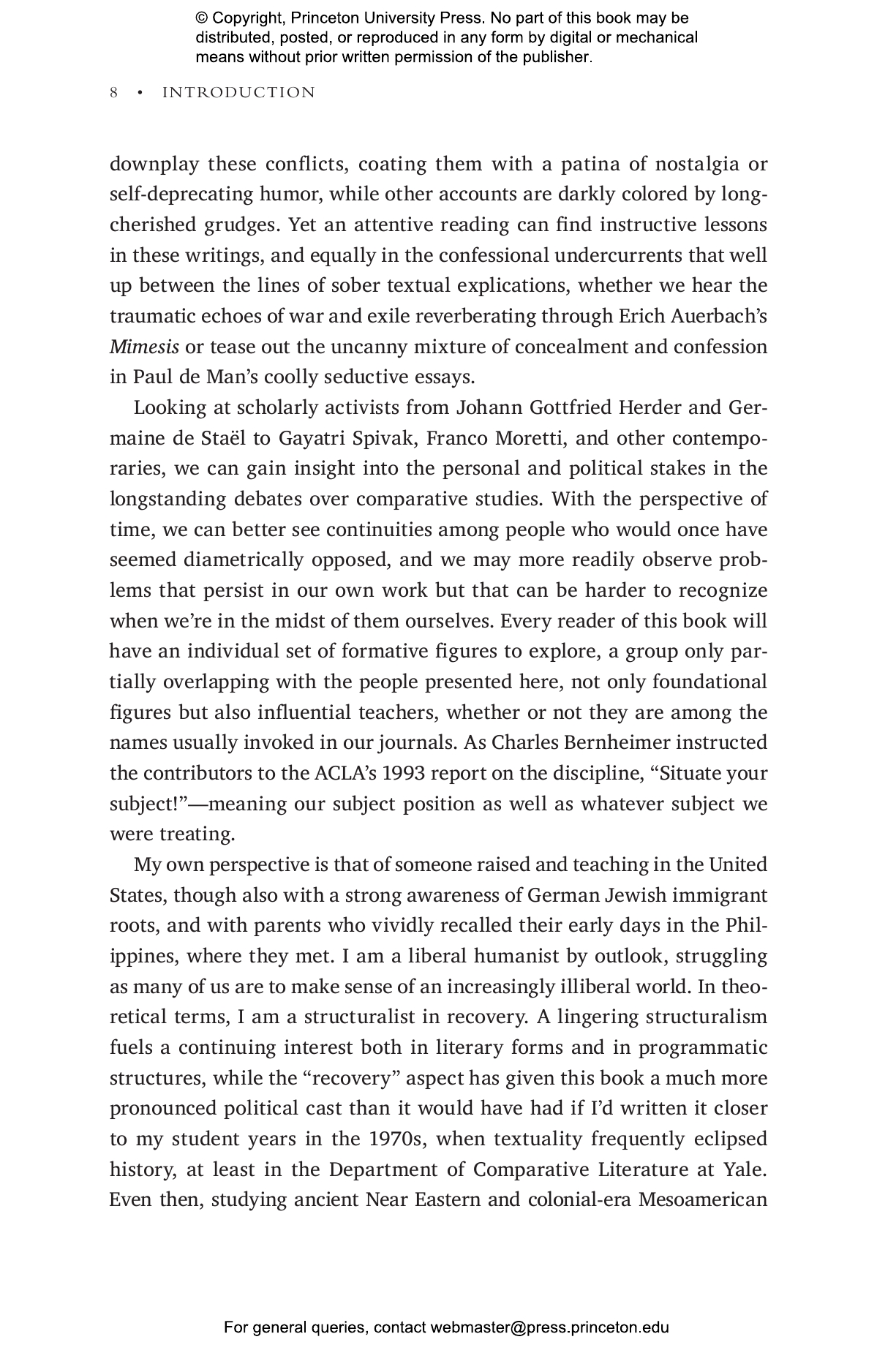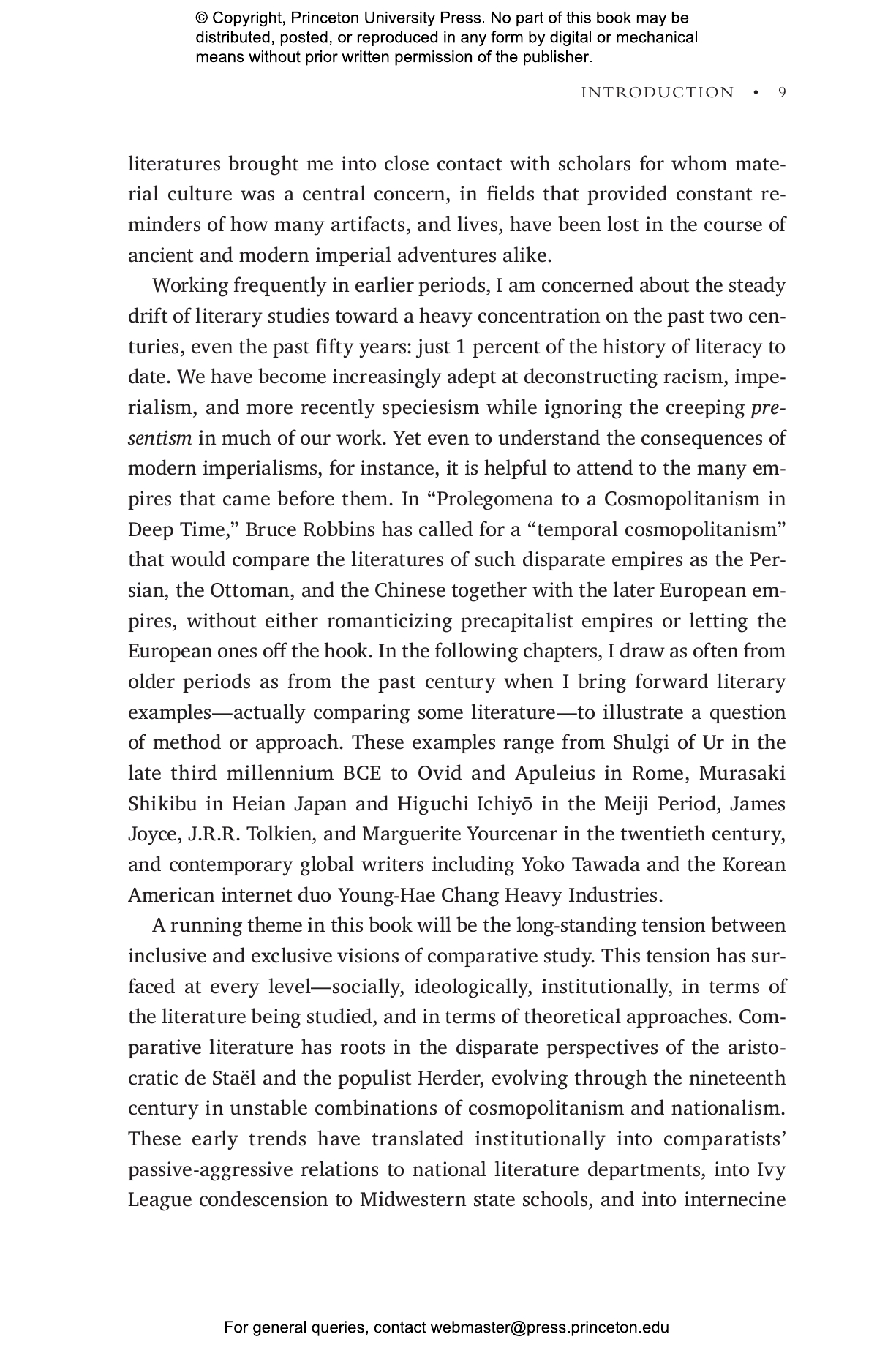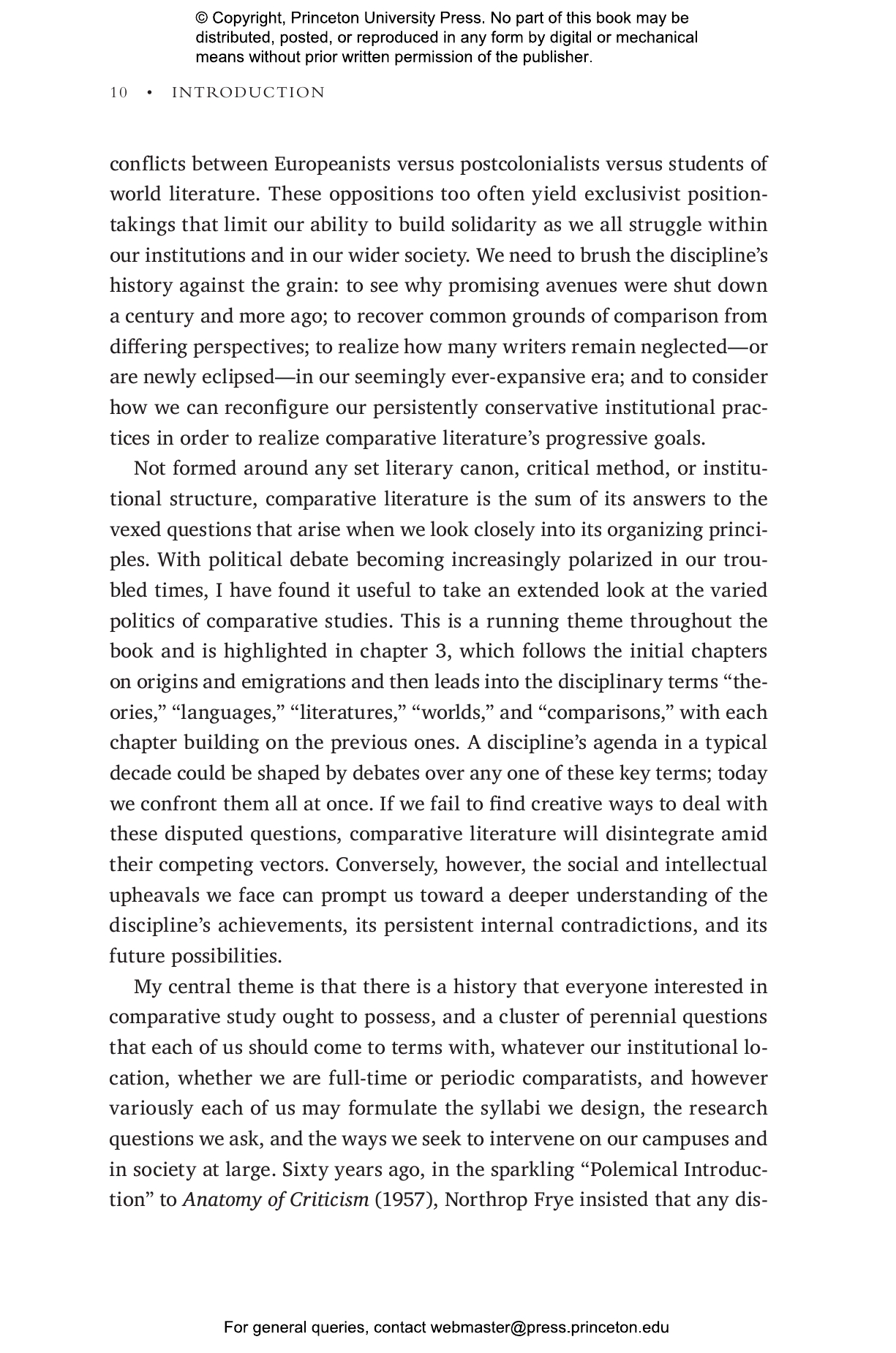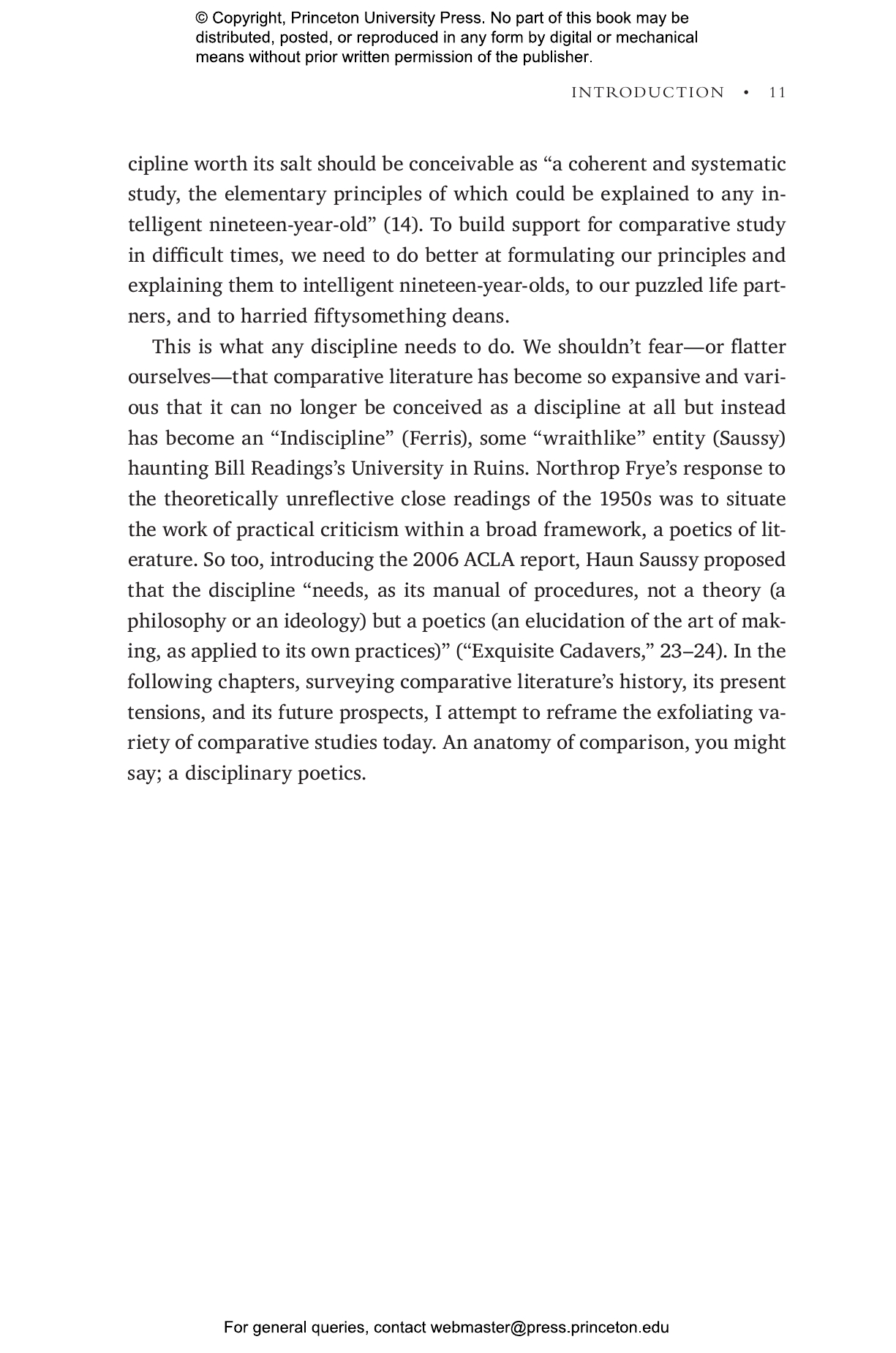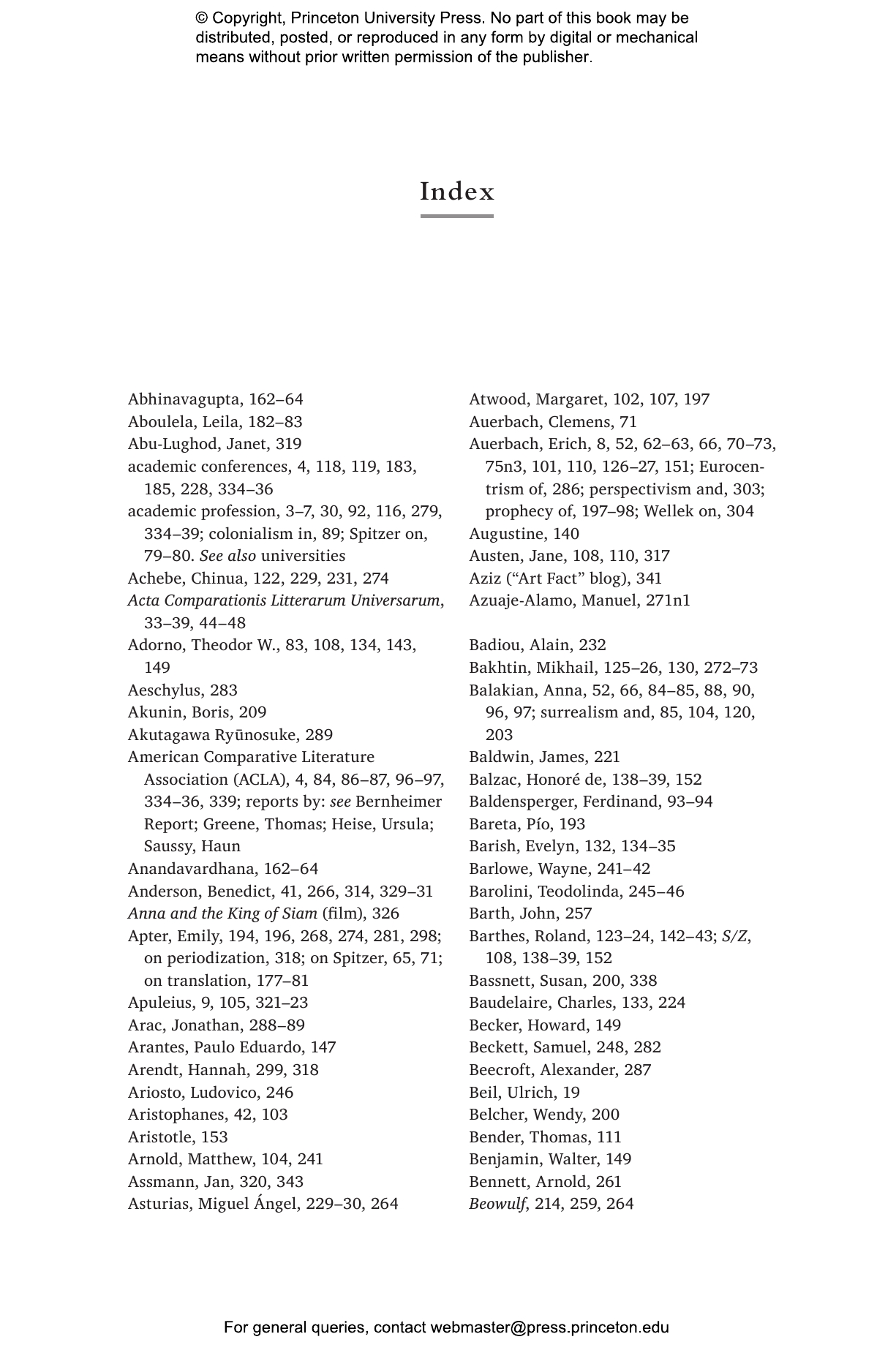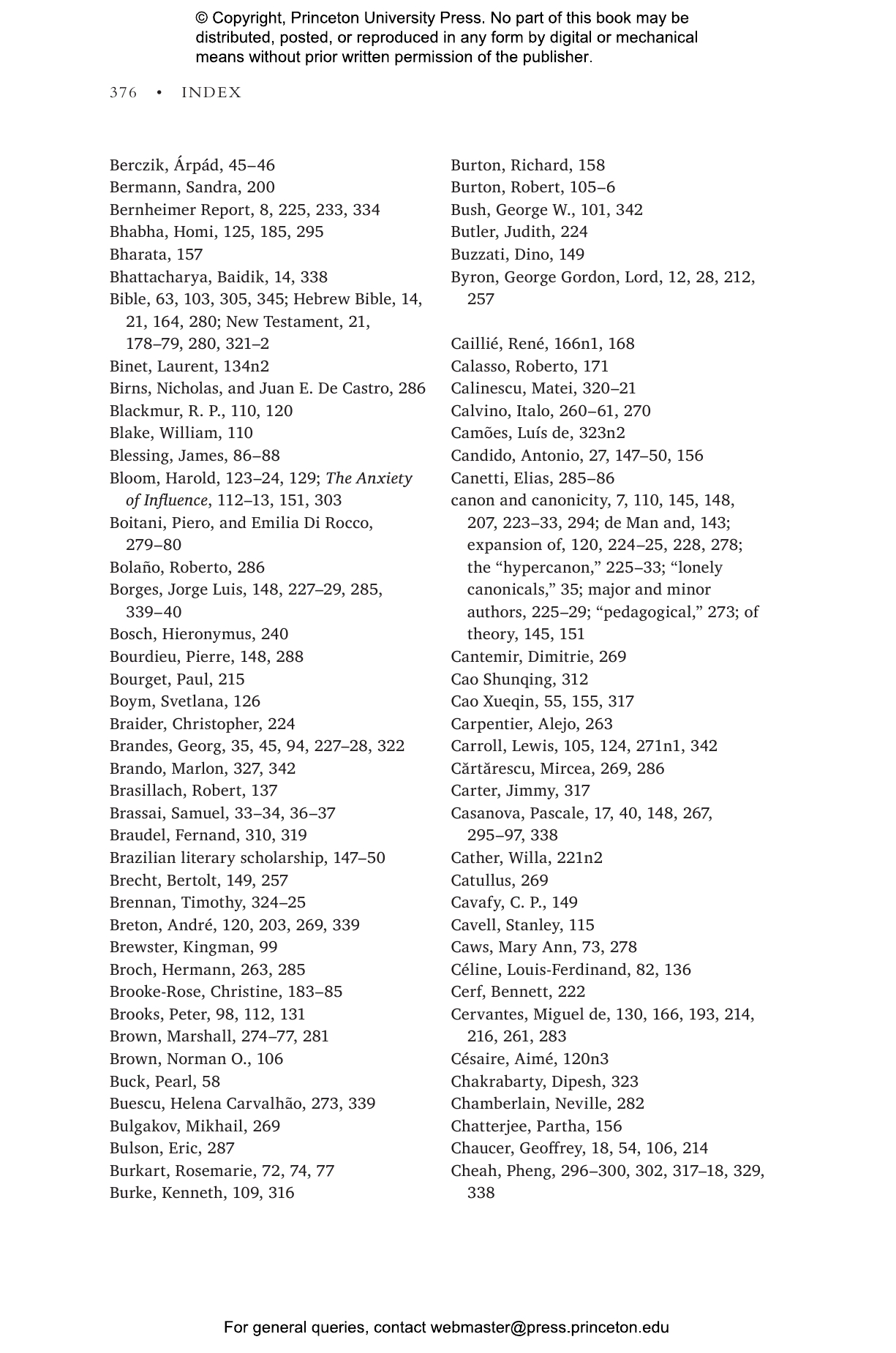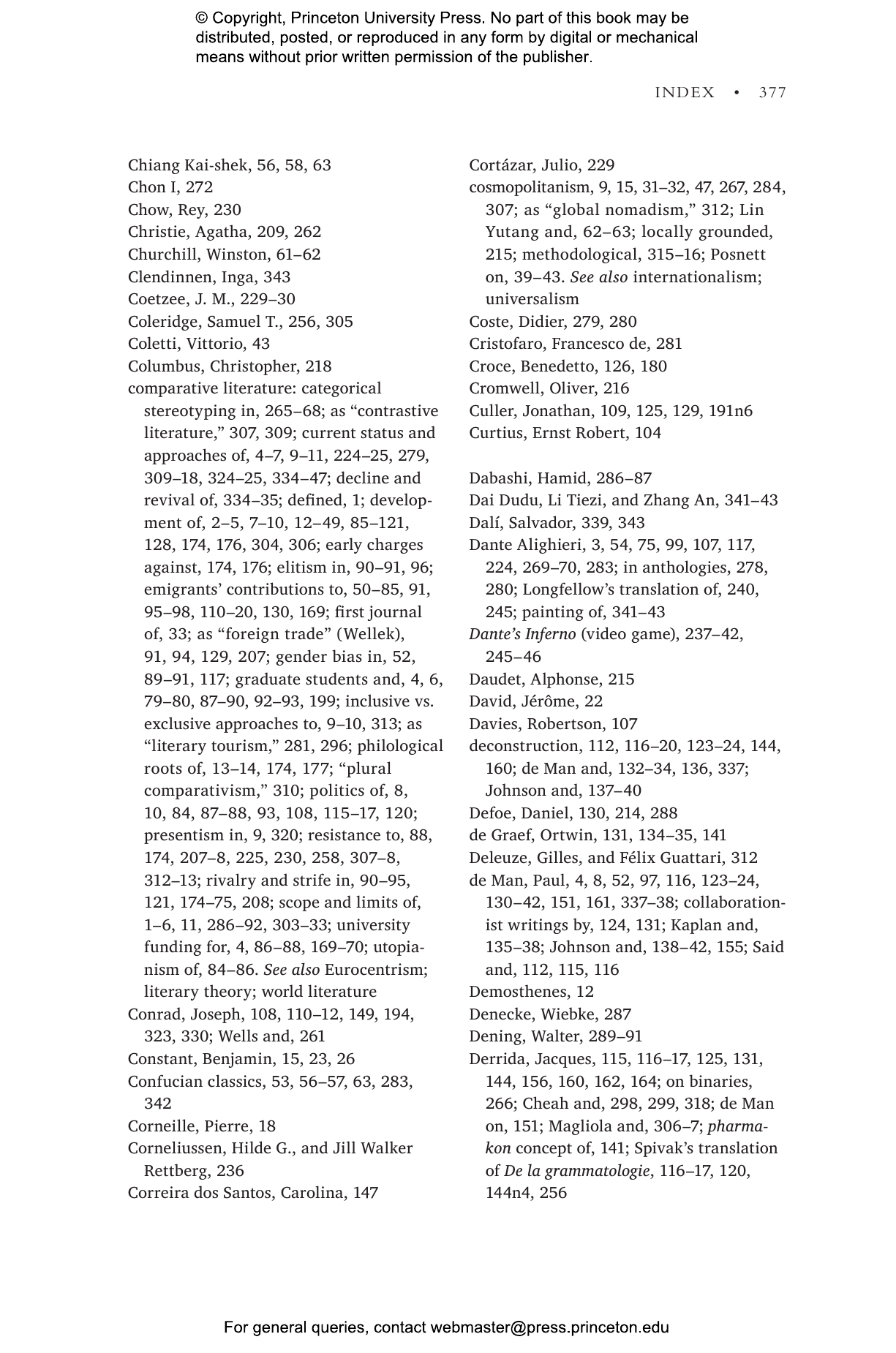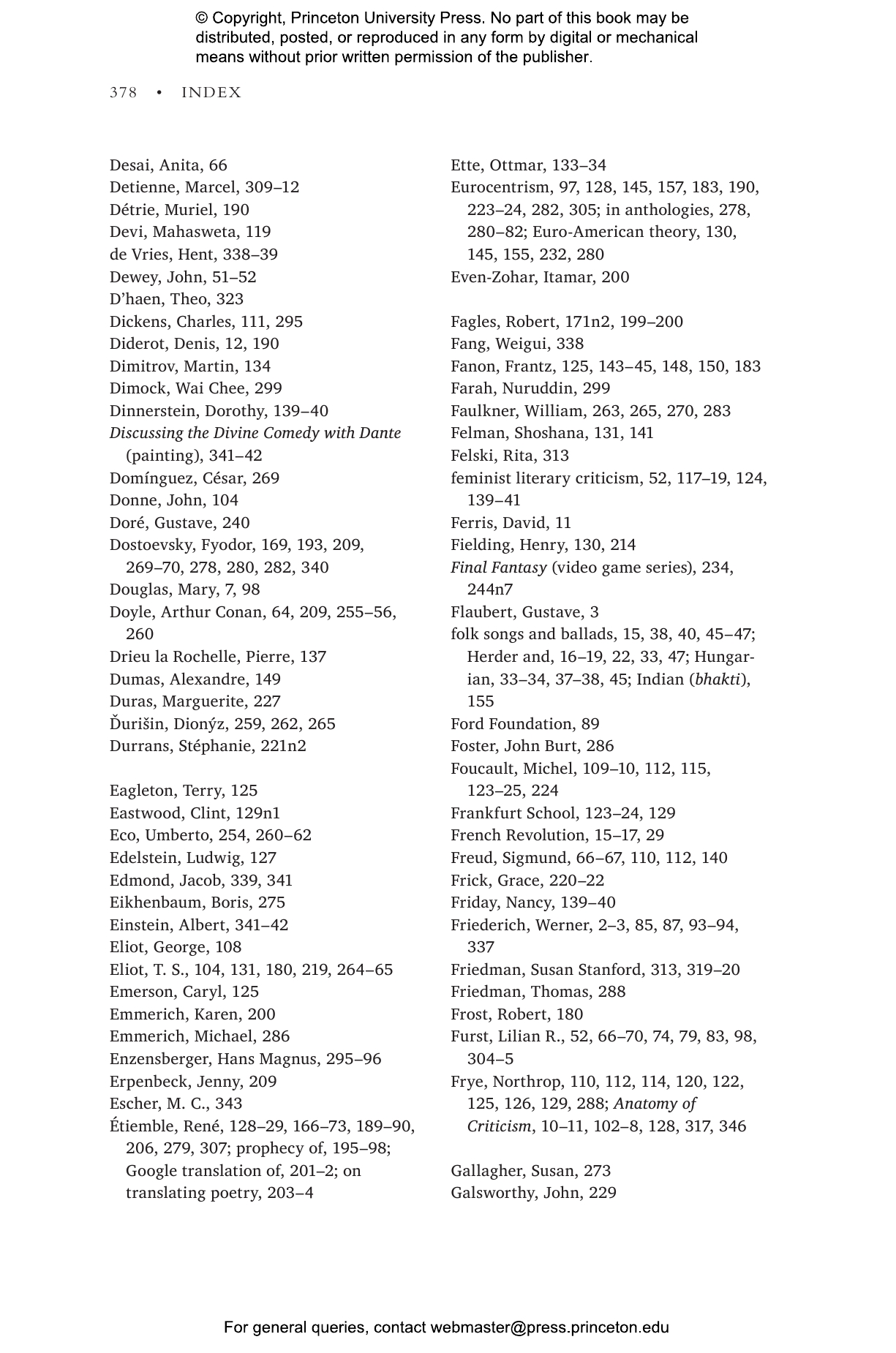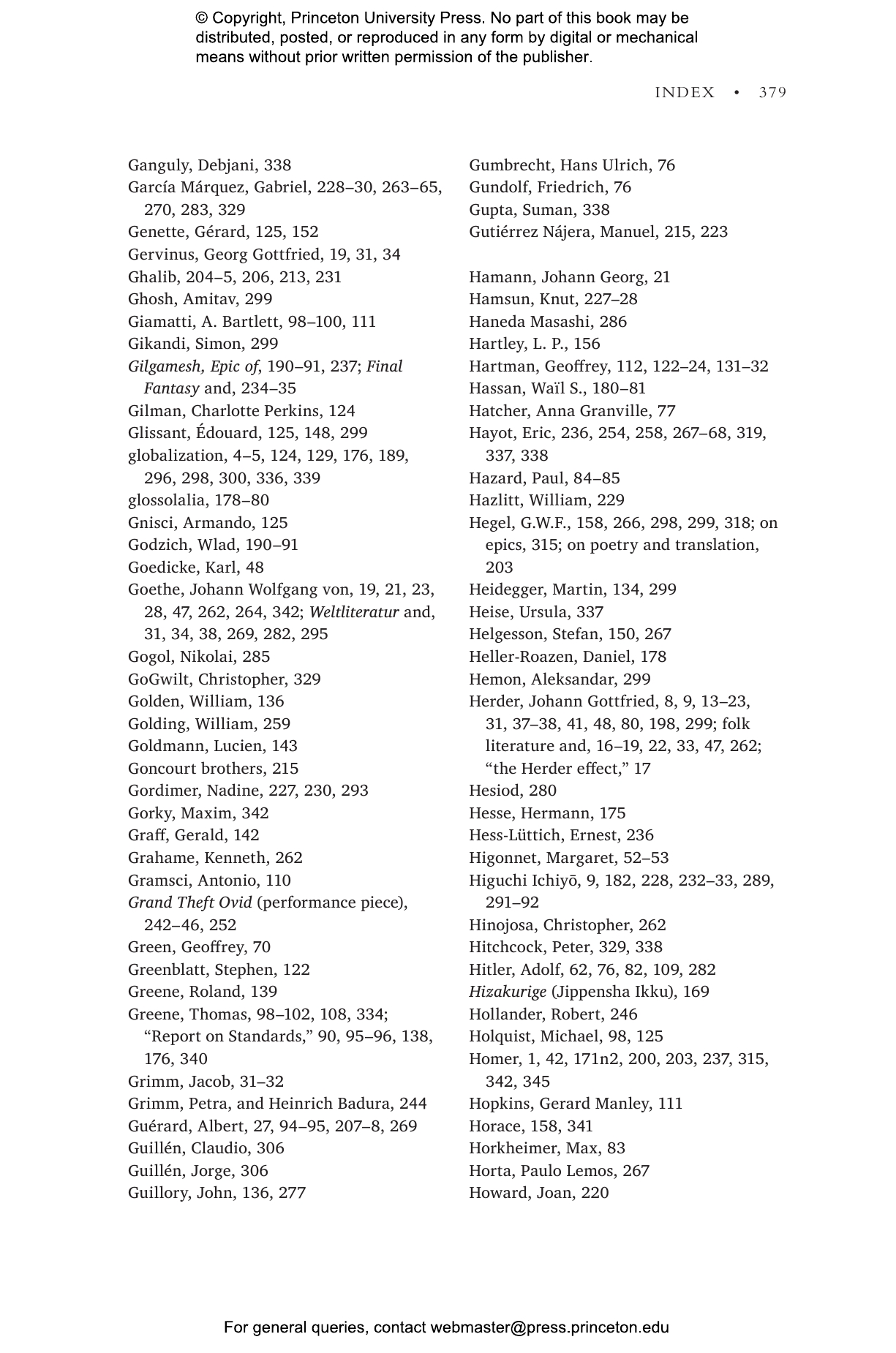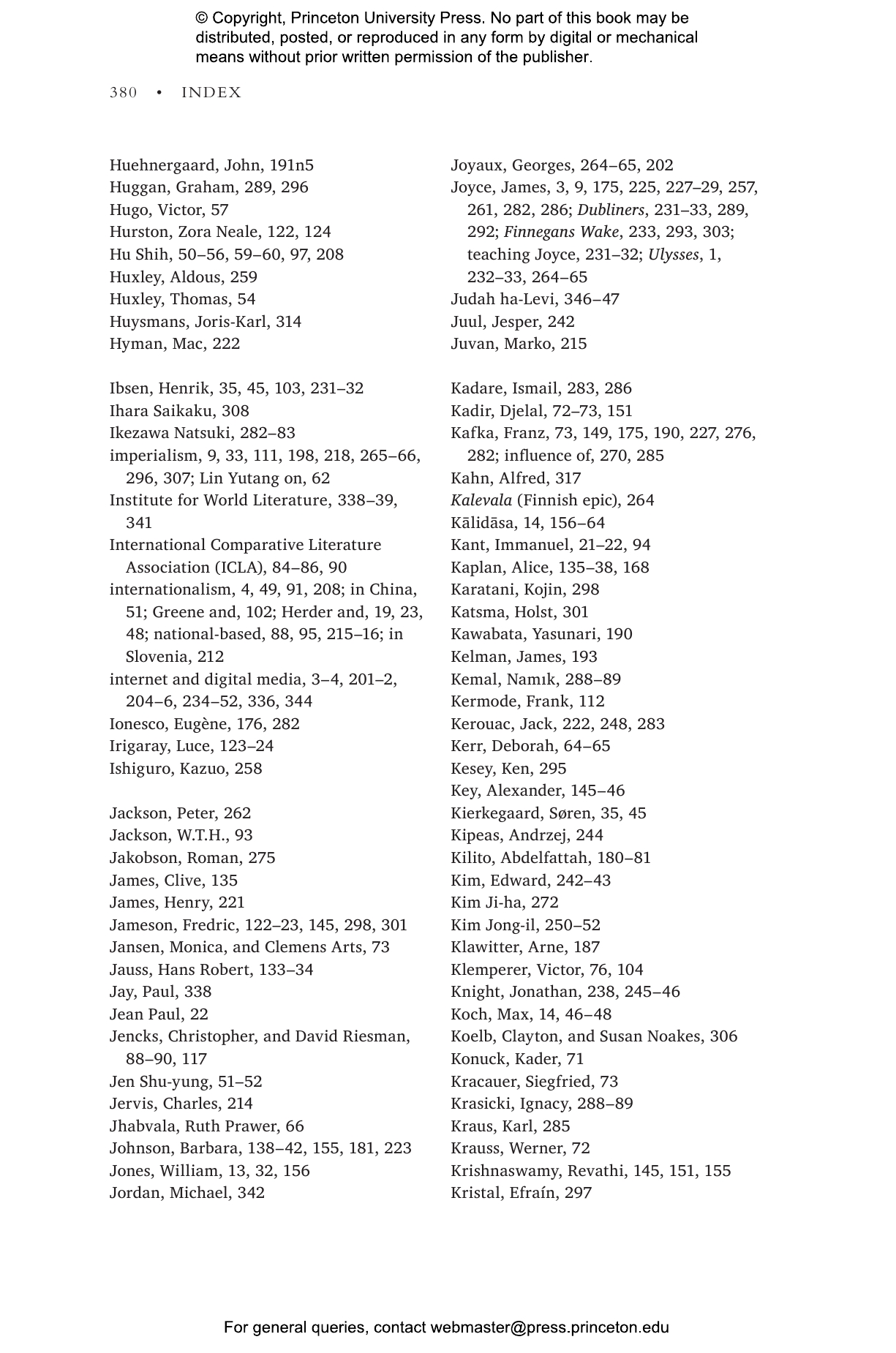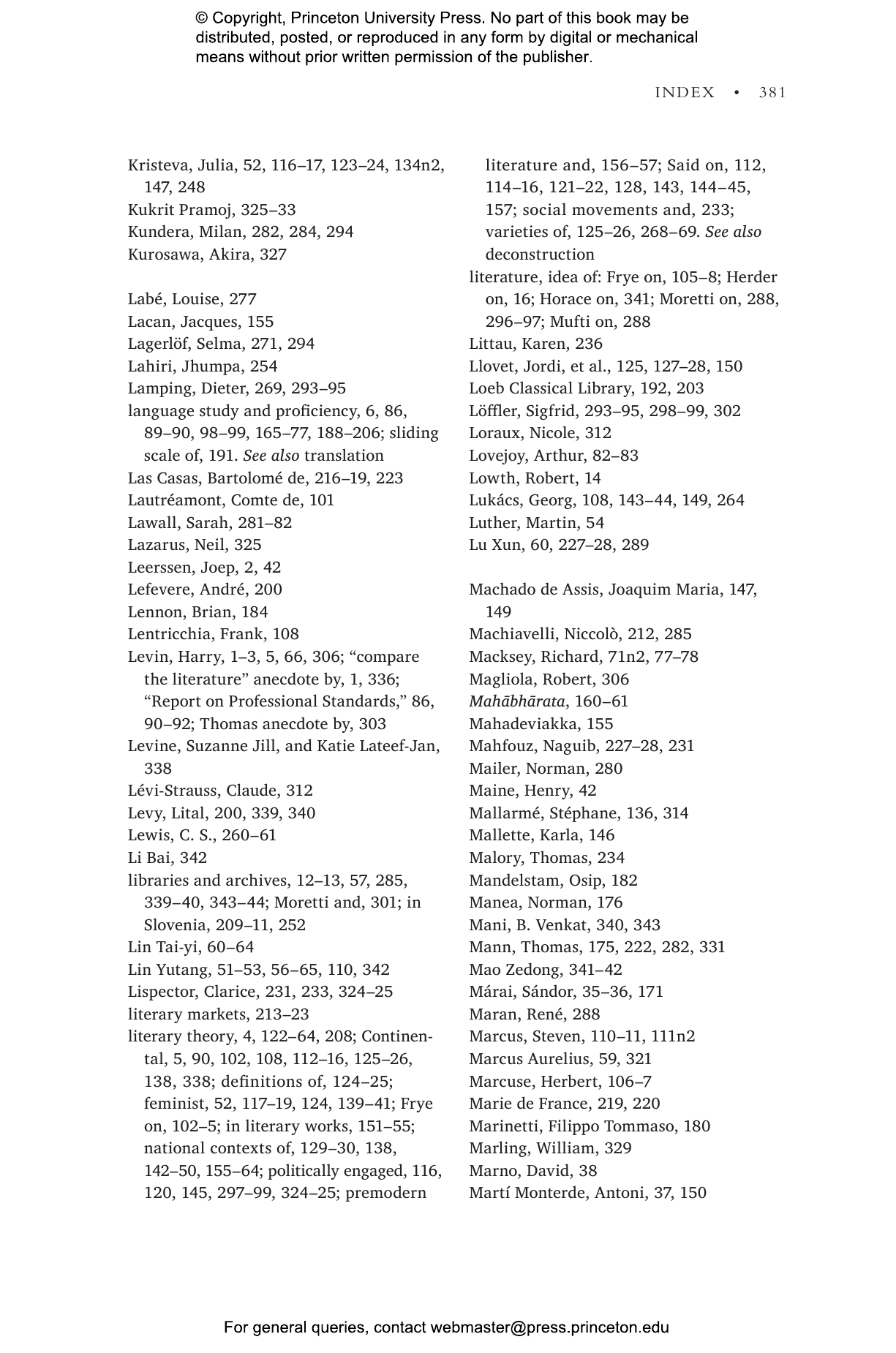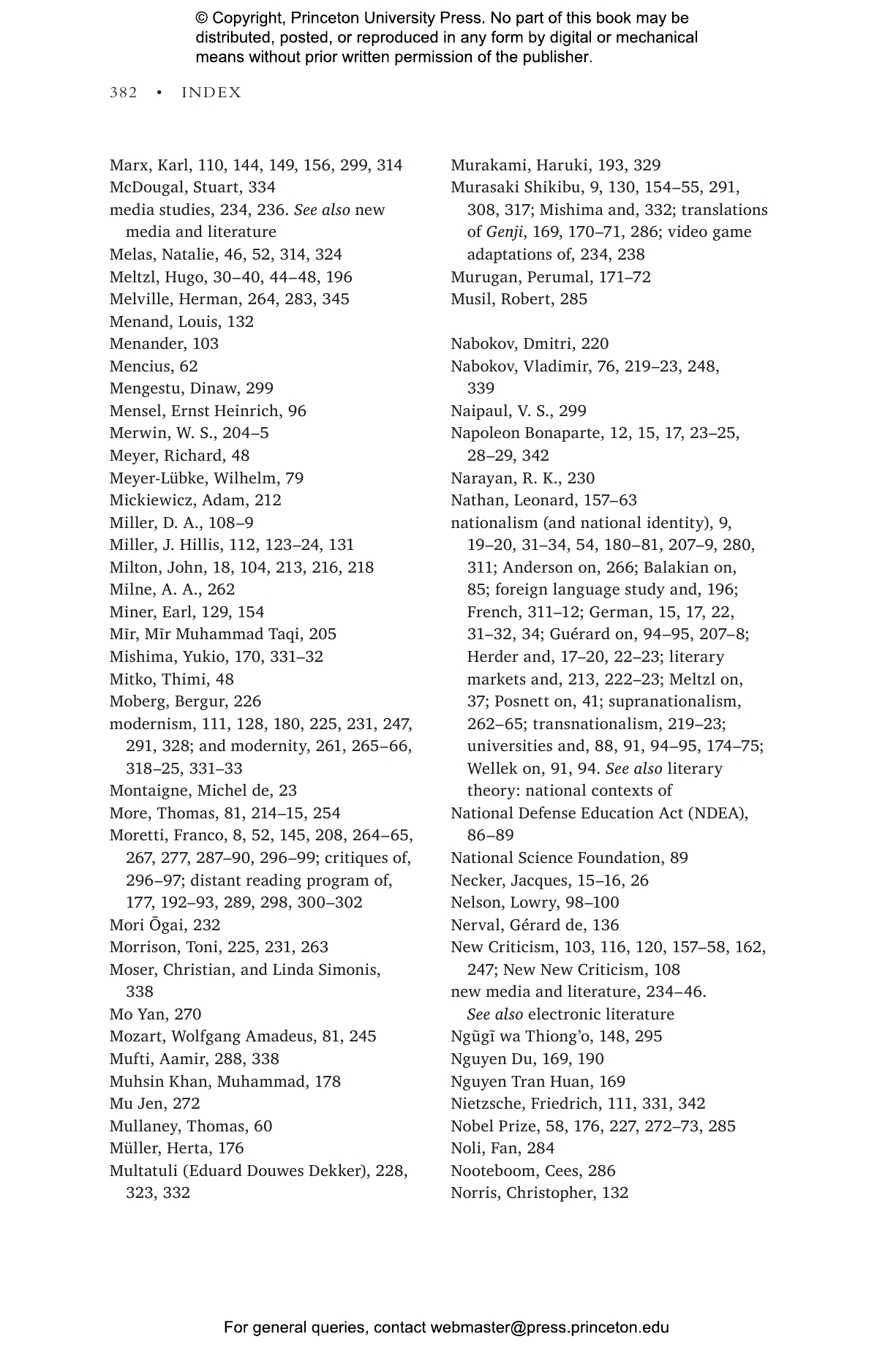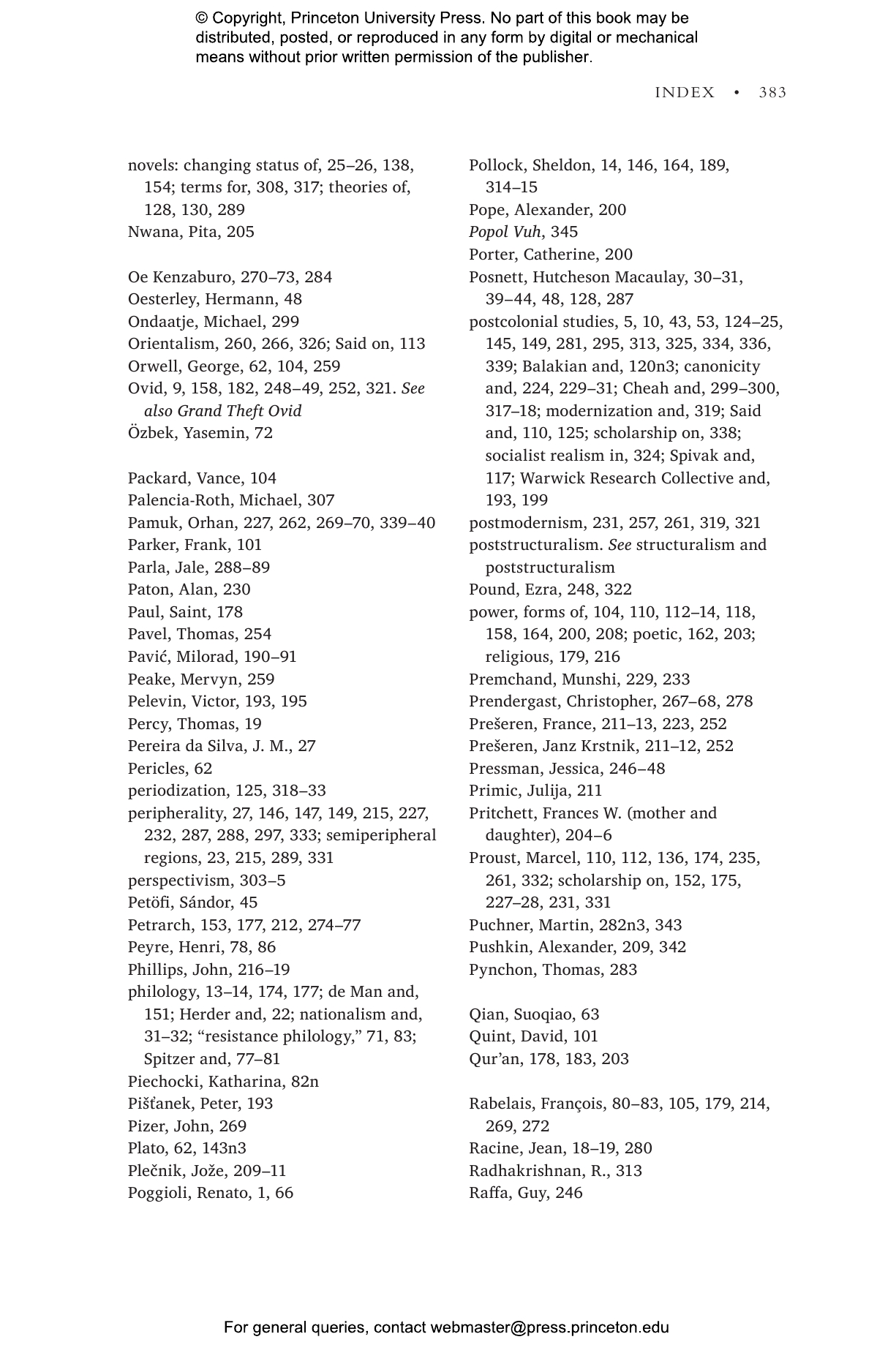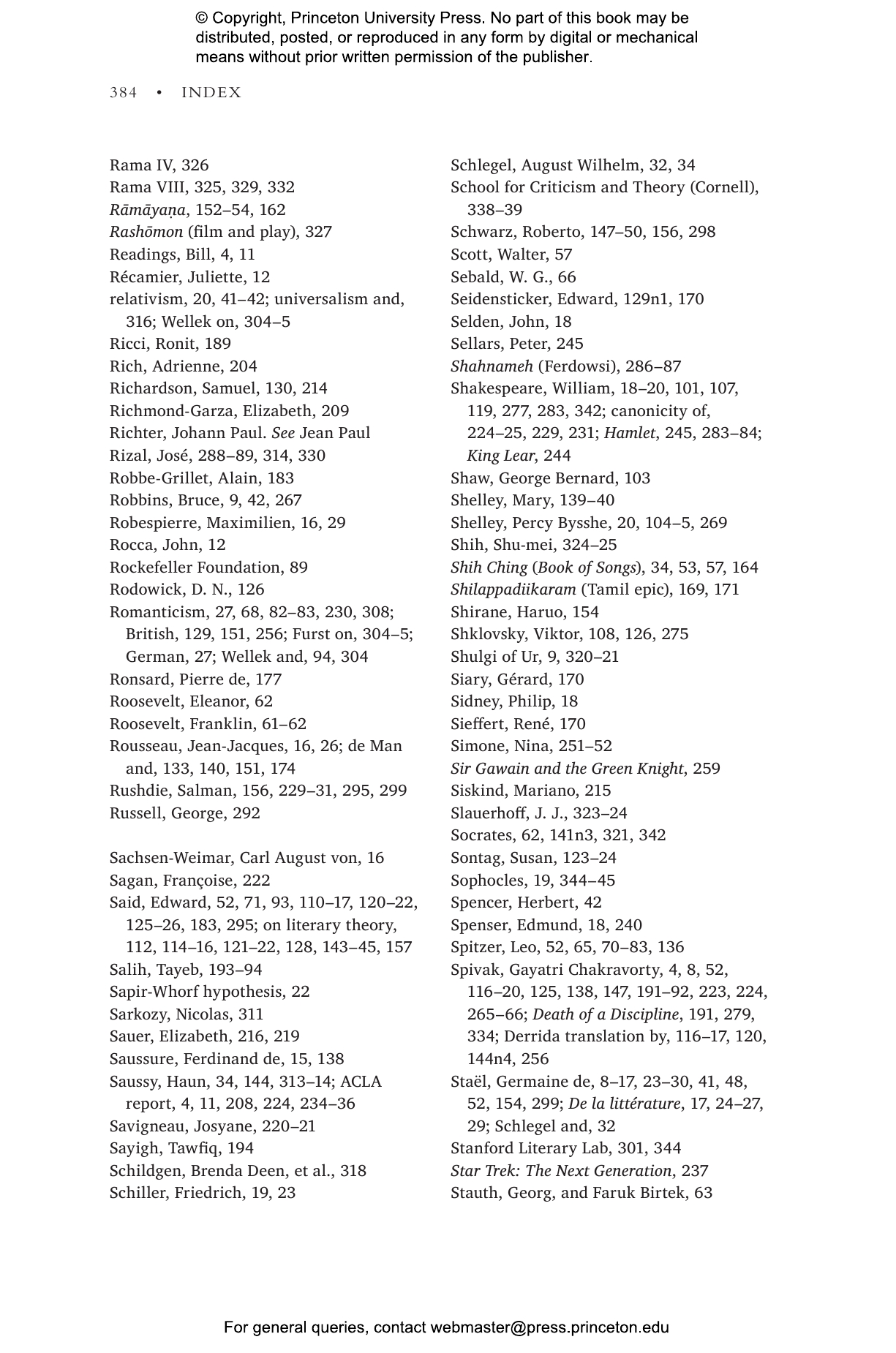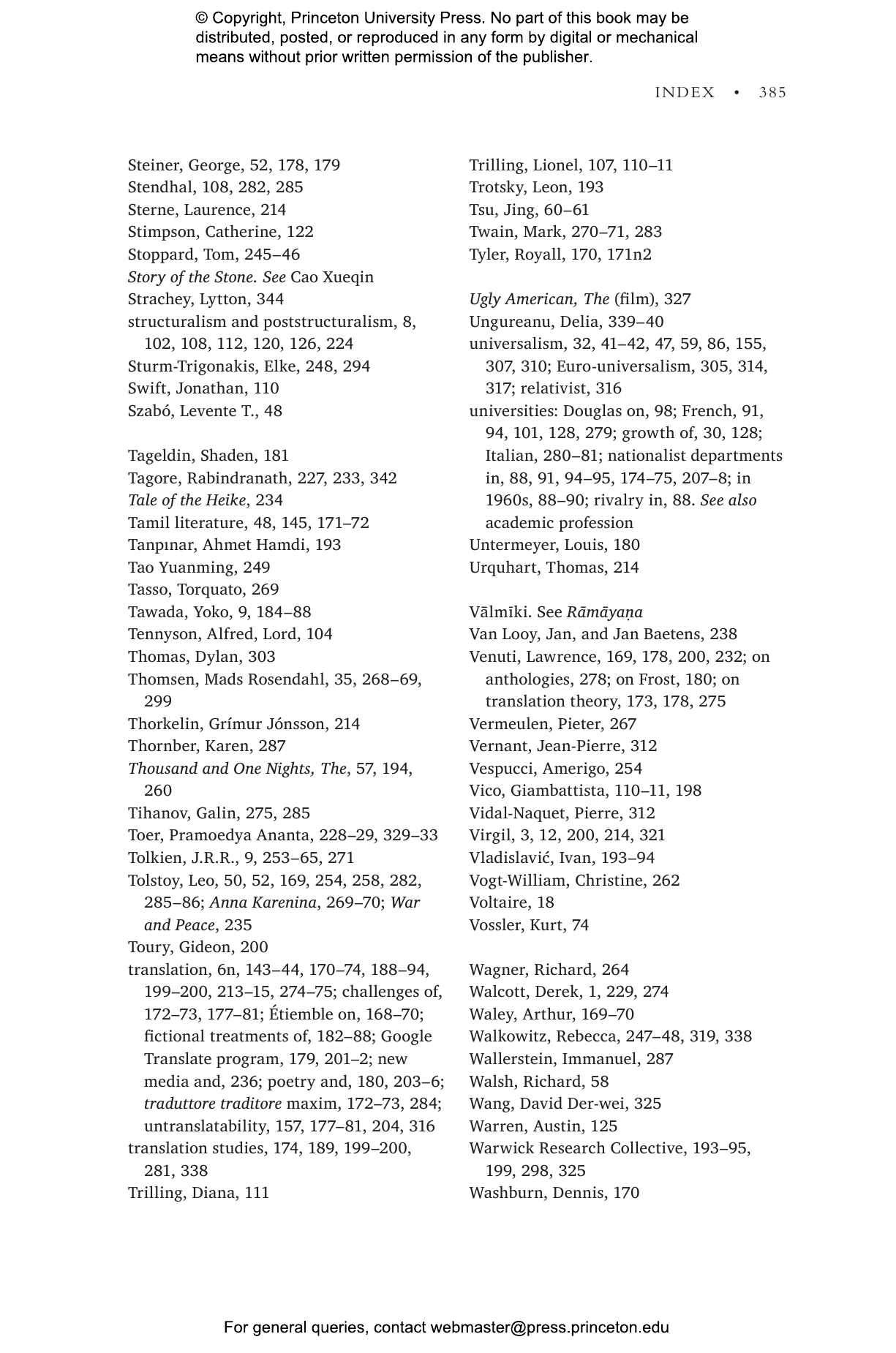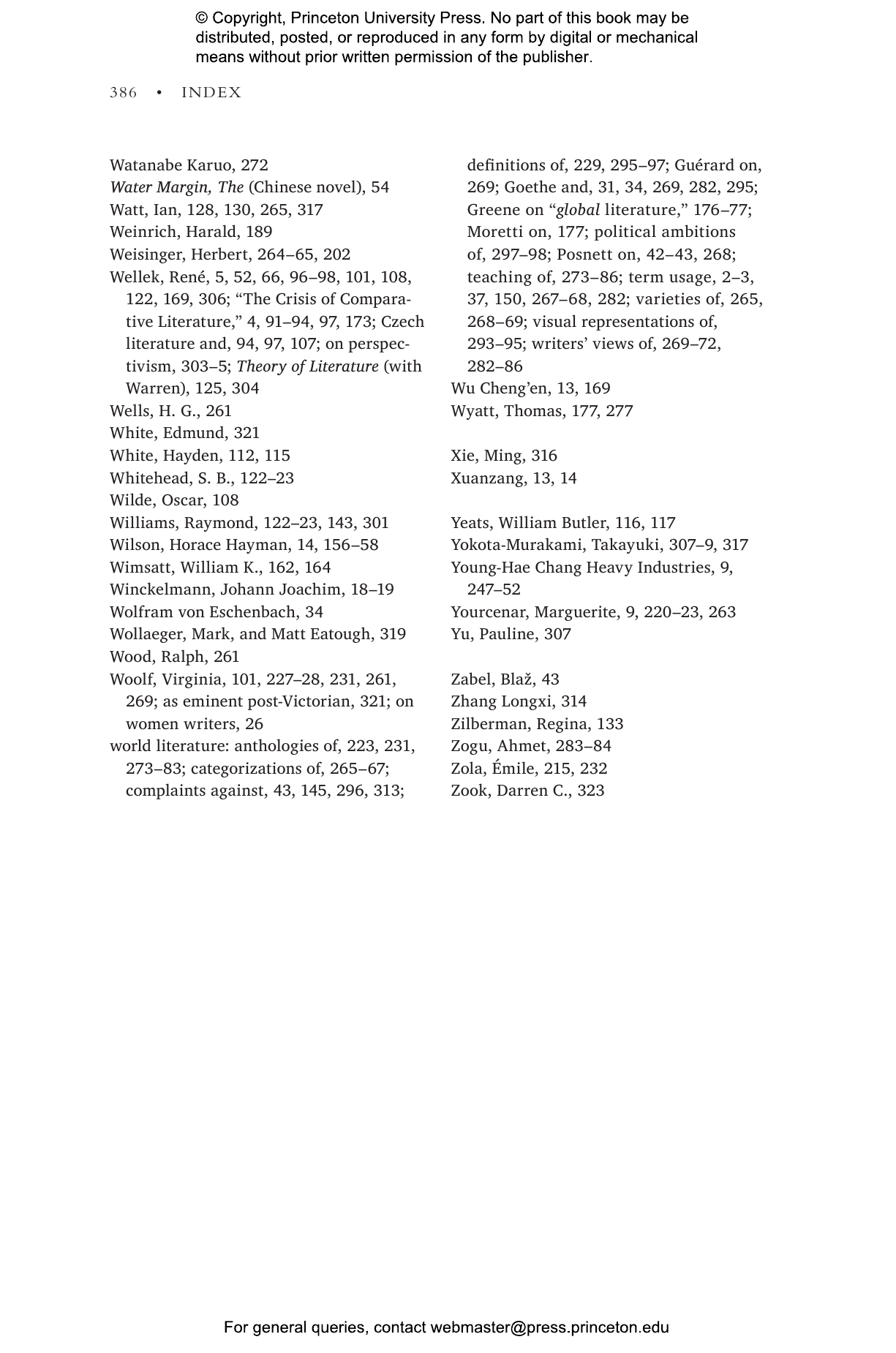Literary studies are being transformed today by the expansive and disruptive forces of globalization. More works than ever circulate worldwide in English and in translation, and even national traditions are increasingly seen in transnational terms. To encompass this expanding literary universe, scholars and teachers need to increase their linguistic and cultural resources, rethink their methods and training, and reconceive the place of literature and criticism in the world. In Comparing the Literatures, David Damrosch integrates comparative, postcolonial, and world-literary perspectives to offer a comprehensive overview of comparative studies and its prospects in a time of great upheaval and great opportunity.
Comparing the Literatures looks both at institutional forces and at key episodes in the life and work of comparatists who have struggled to define and redefine the terms of literary analysis over the past two centuries, from Johann Gottfried Herder and Germaine de Staël to Edward Said, Gayatri Spivak, Franco Moretti, and Emily Apter. With literary examples ranging from Ovid and Kalidasa to James Joyce, Yoko Tawada, and the internet artists Young-Hae Chang Heavy Industries, Damrosch shows how the main strands of comparison—philology, literary theory, colonial and postcolonial studies, and the study of world literature—have long been intertwined. A deeper understanding of comparative literature’s achievements, persistent contradictions, and even failures can help comparatists in literature and other fields develop creative responses to today’s most important questions and debates.
Amid a multitude of challenges and new possibilities for comparative literature, Comparing the Literatures provides an important road map for the discipline’s revitalization.
David Damrosch is the Ernest Bernbaum Professor of Comparative Literature and director of the Institute for World Literature at Harvard University, and a past president of the American Comparative Literature Association. His many books include What Is World Literature? (Princeton), the coedited Princeton Sourcebook in Comparative Literature, The Buried Book: The Loss and Rediscovery of the Great Epic of Gilgamesh, and We Scholars: Changing the Culture of the University.
"How does globalism affect the books we read, and the way we read them? A leading scholar investigates."—New York Times Book Review
"Few scholars active today can claim to have done as much as David Damrosch to shape the discipline of comparative literature in the United States. . . . Damrosch writes with great clarity and care, vividly bringing individual figures and their ideas to life. . . . [He] not only displays the breadth of his own personal canon, but also argues compellingly for the idea that our understanding of a given text is always enhanced by comparing it with other texts, whether or not the pairings are conventional or expected."—Alexander Beecroft, Modern Philology
"No summary could do justice to the wealth of writers, works, and critics discussed in this book, so my recommendation is that readers just lose themselves in this celebration of what comparative literature is and aspires to be."—César Domínguez, Modern Language Quarterly
"Timely and generous, this is a splendid piece of work, with a friendly, informed, and subtle tone."—Michael Wood, author of On Empson
"Damrosch's scintillating erudition, his deep commitment to the future of comparative literature, and the sheer scope and range of his book make it a truly inspirational work that will instantly become a major reference. It is a much-needed rallying cry for the discipline to be reshaped along the lines of methodological pluralism—and for different generations of scholars to interact across ideological and aesthetic divides to produce work that enhances the experience of reading literature inside and outside the classroom."—Galin Tihanov, author of The Birth and Death of Literary Theory
"Lucid and illuminating, exuberant and unpredictable, this historical introduction is much more fun to read than anyone would have expected from so useful and intellectually serious a volume. Comparing the Literatures is a must-have book not just for students and teachers of comparative literature, but for anyone intrigued by the sense past scholars have tried to make of literature at the world scale, and the possibilities open to future scholars."—Bruce Robbins, Columbia University
"As a comparatist outside the discipline of comparative literature, I found Comparing the Literatures riveting, especially for its portraits of comparative thinkers and global poetics both ancient and modern, male and female, and from every part of the globe. An influential leader in the field, Damrosch capaciously tells the story of its evolution, representing sharp debates on contentious issues such as language, translation, Eurocentrism, postcolonial studies, and world literature with a compelling judiciousness. A must-read for anyone interested in comparing literatures."—Susan Stanford Friedman, University of Wisconsin–Madison
